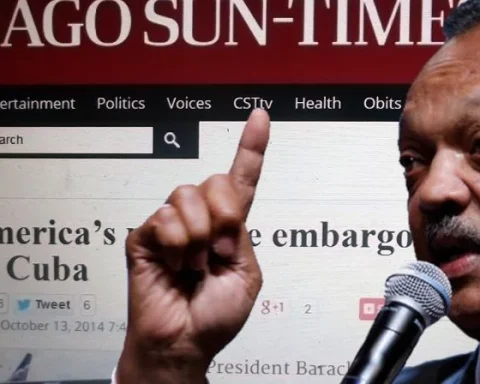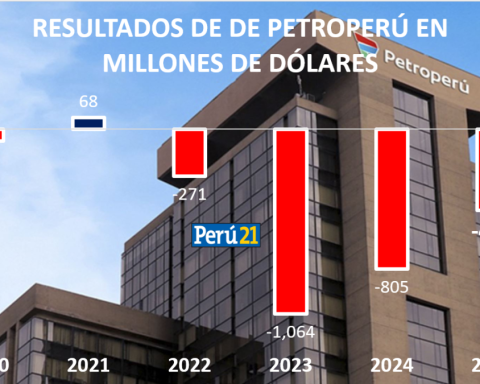The uncontrolled growth of public debt will, over the next 50 years, have profound impacts on the Gross Domestic Product (GDP, the sum of all goods and services produced in the country). And this movement could affect the financial health of Brazilian companies. The warning is in a study by the National Confederation of Commerce in Goods, Services and Tourism (CNC), released this Tuesday (1st). 
The CNC assesses that without structural measures, such as administrative reform, in 50 years the accumulated loss could be greater than R$1.375 trillion, which will result in a risk to the sustainability of the business.
The study’s calculations indicate that for each percentage point (1 pp) increase in public debt in relation to GDP, Brazil loses around R$1.3 billion per year. “Which reduces the investment capacity of the private sector, increases the cost of credit and compromises the country’s competitiveness”, warns the entity.
As a way to avoid a scenario of economic stagnation and growing fiscal pressure on companies, the CNC identifies administrative reform as an essential solution. “It is not just a question of efficiency, but of the survival of the Brazilian business sector”, said the president of the CNC-Sesc-Senac System, José Roberto Tadros, in the publication.
According to the entity, in the last decade, Brazil showed growth of 84%, with an average rate of 7% per year. Despite this, the significant increase in public spending, which increased at an average rate of 53% per year over the last 20 years, is in contrast to the increase of just 35% in revenues. “This discrepancy has fueled consecutive deficits, forcing the government to seek more debt and putting pressure on the productive sector with high interest rates and a growing tax burden”, pointed out the CNC.
Pressure
The study indicates a worrying scenario for Brazilian businesspeople and highlights that without administrative reform, the imbalance in public accounts would require an increase of up to 9% of GDP in the tax burden. For the president of the CNC, if this happens, the productive sector will suffer devastating effects.
“The fiscal situation not only threatens economic growth, but imposes an additional burden on companies, which already deal with one of the highest tax burdens in the world. Without an urgent review of public spending, the private sector will be directly affected by higher taxes, compromising its ability to compete and grow”, he assesses.
According to the CNC, Brazil currently has a tax burden equivalent to almost 33% of GDP, one of the highest in the world. “This is considered high by international standards and directly affects the competitiveness of the business sector. Furthermore, more than 96% of federal government expenses are mandatory, which means there is little room for discretionary adjustments, making fiscal management even more difficult”, noted the entity.
Without structural reforms, according to the CNC, with the expectation of reaching 100% of GDP by 2033, the increase in public debt will increase the cost of financing and limit investments in strategic areas such as infrastructure, health and education, which the entity classifies as “essential pillars for the competitiveness of companies in the global market”.
CNC accounts indicate that government expenses have grown at an average rate of 5.3% per year since 2002, while revenue has risen only 3.7%. “This mismatch fuels consecutive primary deficits, forcing the government to finance its debt with more debt, which puts pressure on the productive sector with high interest rates and economic instability. For companies, this translates into higher credit costs, reduced investments and loss of competitiveness”, points out the study.
Still according to the research figures, public debt went from 45.3% of GDP in 2008 to 77.8% in 2023, with a continuous growth trend. “This increase generates a vicious circle of debt, increasing financial costs and limiting the country’s ability to make public investments that would boost the private sector”, explains CNC’s chief economist, Felipe Tavares.
Reform
The CNC estimates that, in 10 years, the administrative reform could generate savings of R$330 billion, combined with attracting new investments through privatizations and concessions.
“The lack of a solution, however, would imply more losses for the business sector. Every 10 pp increase in public debt results in a 0.12 pp drop in annual economic growth, compromising both the performance of companies and their ability to innovate and compete globally”, highlights the economist.
The study also suggests the importance of correcting the distortion in the allocation of public spending, mainly in education, a sector in which, in the CNC’s assessment, Brazil invests more per student in higher education than in primary education, “which contributes to unsatisfactory performance in international tests such as Pisa [Programa Internacional de Avaliação de Alunos]”.
“The business community will be the most harmed if there is no immediate solution to the fiscal issue, as economic deterioration increases country risk, inhibits new business and drives away investors”, warns the president of the CNC, José Roberto Tadros.
Reinforcing the need for structural measures, the CNC launched, on Sunday (29), the campaign, broadcast on open and closed TV, in addition to its social networks, drawing attention to the urgency of reducing public debt to ensure that the country develops.

















